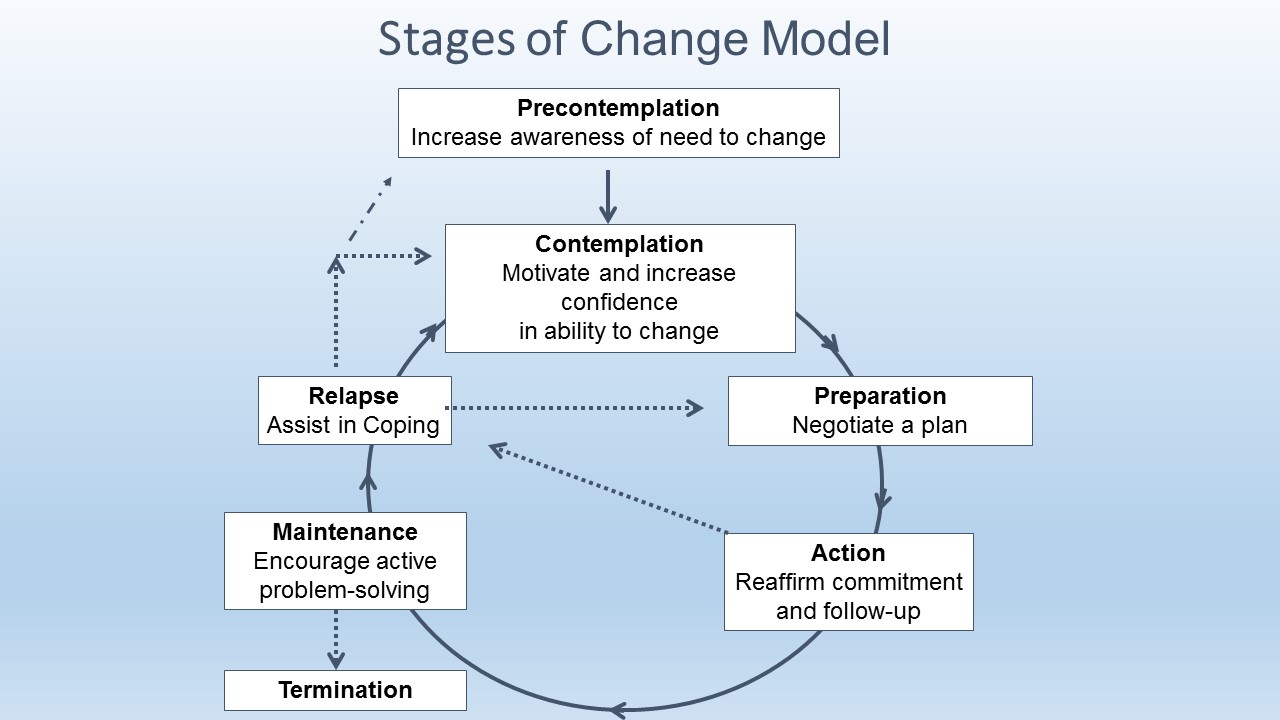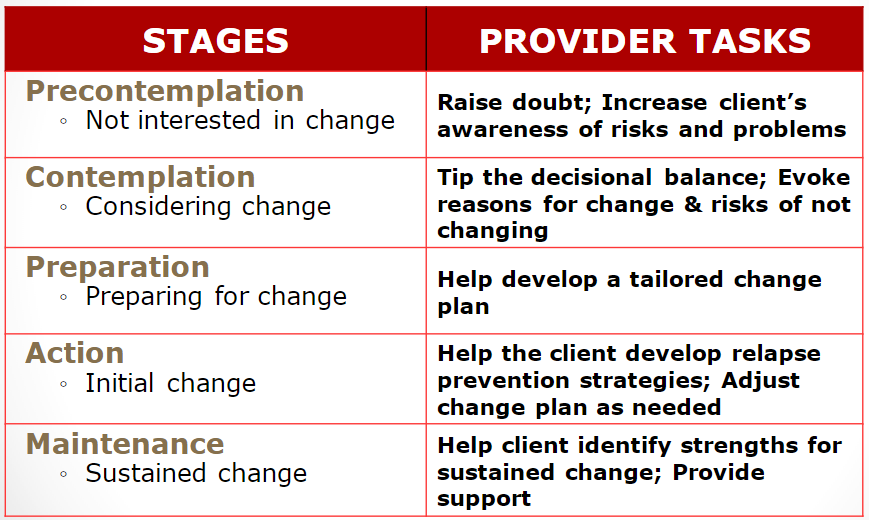Addiction, Change & Recovery
Addiction
What are Addictions?
Addictions are habitual patterns of intentional, appetitive behaviors. Often addictions can become excessive, problematic, and produce serious consequences. An addiction is the stability of these problematic behavior patterns over a period of time.
Addiction are complex as they involve the interrelated physiological, psychological, and social components of an individual. Often individuals struggling with addiction have difficulty modifying and stopping these patterns of behavior (smoking, alcohol, marijuana, heroin or process addictions like gambling, sex, etc.).
The Impact of Addiction on the Brain
Neurobiological Adaptation – Often addiction can be perceived as a brain disease, meaning there are changes in the brain as brain and biology adapt to the frequent exposure to an addictive behavior or substance.
When there is nuerobiological adaptation you may see...
- an increased need for a substance for an individual to feel normal
- poor stress tolerance, meaning an individual is less able to handle stress
- withdrawal and tolerance
- increased strength of triggers and cues
- negative emotions when an individual is not able to use addictive substances or partake in addictive behaviors
- lack of response to "normal" pleasures - an individual may not feel pleasure in other aspects of their life when compared to the effect of addictive substances/behaviors.

Change Process
When working with pregnant women whom use substances it is important to assess what stage of change they are in, and what is their level of readiness to make the desired changes at this point in their life. Change is voluntarily only when an individual becomes interested and concerned about the need for change, they become convinced the change is in their best interest or will benefit them more than cost them, they organize a plan of action that they are committed to implementing, they take the actions necessary to make the change and sustain the change.

Click to learn more about the stages of change and view our readiness ruler tool.
What Can You Do?
As a provider what can you do at each of the varying stages of the change process? Check out the chart below!

Recovery
Remember, recovery is a marathon, not a sprint! Recovery often occurs over a long period of time, which may involve multiple attempts and/or multiple treatments. This journey to recovery consists of self change, and likely will involve changes in other areas of the individual's physical, social, and psychological life.
Click here for a list of recovery centers in Maryland
Relapse & Recycling
Often times the journey through recovery may involve slips, lapse, or relapse.
Slip: one instance of use, not a return to previous patterns of use.
Lapse: Using a few times, yet not returning to previous patterns of use.
Relapse: Back to using problematically
Recycling: Trying again to get it right. Successful recycling includes persistent efforts, repeated contacts, helping the substance user take the next step, and increasing confidence and motivation.
Success Stories
Though the journey through addiction can be long and often challenging, it is important to remember that successful recovery is possible.
Listen to Tiffany Brown talk about her favorite success story working as a supervisor for the department of social services.